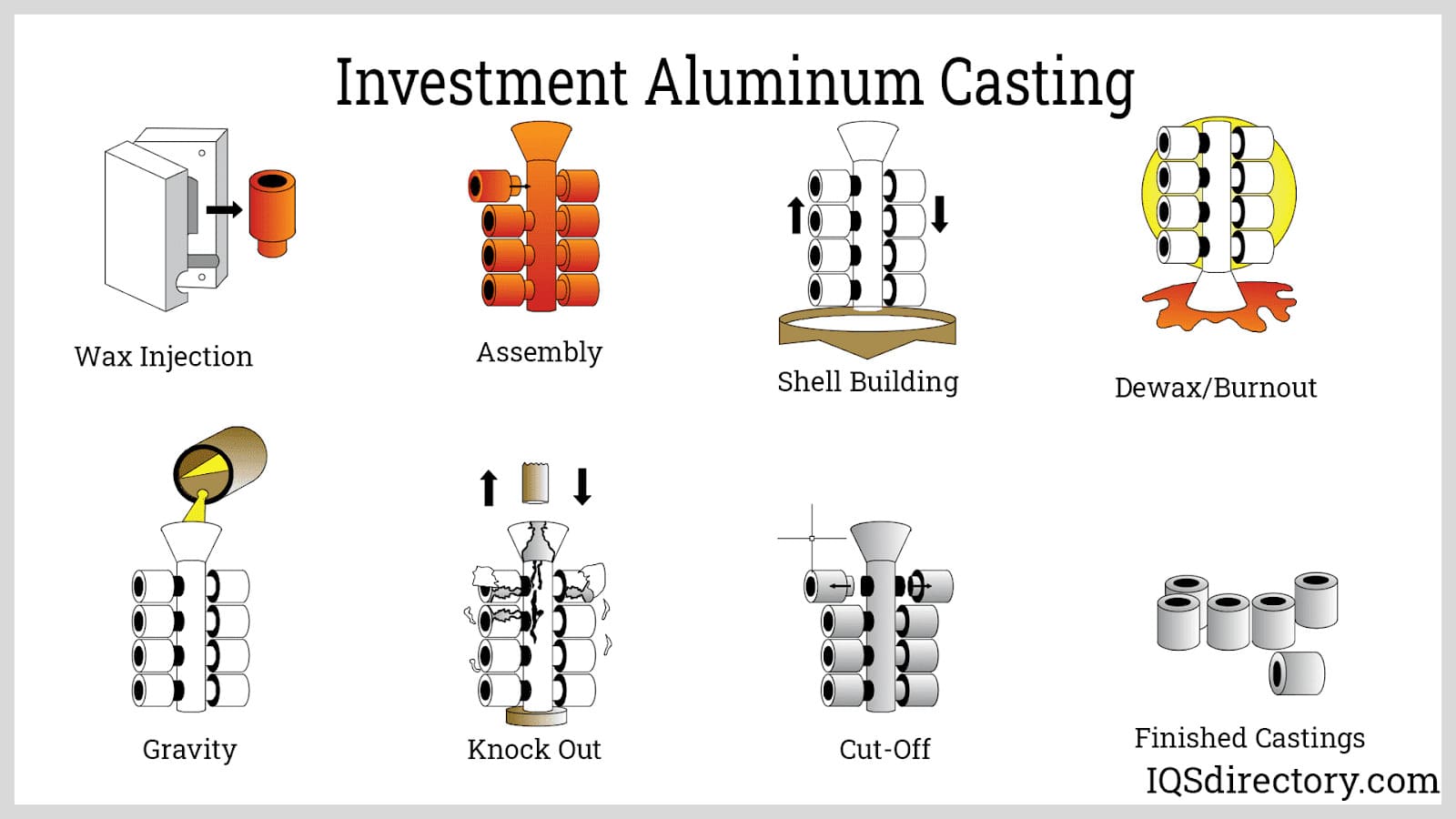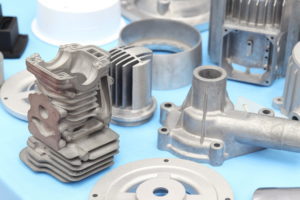Some Known Details About Stahl Specialty Company
Some Known Details About Stahl Specialty Company
Blog Article
The 10-Second Trick For Stahl Specialty Company
Table of ContentsRumored Buzz on Stahl Specialty CompanyStahl Specialty Company for BeginnersStahl Specialty Company Things To Know Before You BuyNot known Facts About Stahl Specialty CompanyThe Of Stahl Specialty Company
The subtle difference exists in the chemical content. Chemical Comparison of Cast Light weight aluminum Alloys Silicon advertises castability by reducing the alloy's melting temperature level and enhancing fluidness throughout spreading. It plays a vital duty in permitting elaborate molds to be filled up precisely. Furthermore, silicon adds to the alloy's stamina and wear resistance, making it important in applications where toughness is essential, such as auto components and engine parts.It likewise enhances the machinability of the alloy, making it much easier to refine into ended up items. In this method, iron adds to the overall workability of light weight aluminum alloys.
Manganese contributes to the toughness of aluminum alloys and boosts workability. It is typically made use of in functioned light weight aluminum items like sheets, extrusions, and accounts. The presence of manganese help in the alloy's formability and resistance to cracking during manufacture processes. Magnesium is a light-weight element that offers toughness and impact resistance to light weight aluminum alloys.
It permits the production of light-weight parts with outstanding mechanical residential properties. Zinc boosts the castability of aluminum alloys and assists regulate the solidification procedure during casting. It boosts the alloy's toughness and hardness. It is typically located in applications where elaborate shapes and great details are required, such as decorative castings and particular vehicle parts.
Stahl Specialty Company Can Be Fun For Anyone
Because aluminum-silicon alloys have excellent spreading properties, high gas residential or commercial properties, easy processes, and excellent deterioration resistance, aluminum-silicon alloys are most commonly made use of in the die-casting sector in your home and abroad. At the very same time, aluminum-silicon alloys are likewise relatively very early and widely identified alloys established and utilized in die-casting. After continuous study and enhancement, many of the existing global mainstream aluminum-silicon alloys have actually been settled and are absolutely nothing more than A356, A360, A380, ADC12, B390, and A413.
The main thermal conductivity, tensile toughness, return strength, and prolongation differ. Select ideal resources according to the performance of the target item created. Amongst the above alloys, A356 has the greatest thermal conductivity, and A380 and ADC12 have the most affordable. The tensile restriction is the opposite. A360 has the very best return stamina and the highest prolongation rate.

The 6-Second Trick For Stahl Specialty Company
In precision spreading, 6063 is well-suited for applications where complex geometries and top notch surface area finishes are extremely important. Examples consist of telecommunication enclosures, where read more the alloy's remarkable formability allows for streamlined and aesthetically pleasing styles while keeping architectural honesty. In the Lighting Solutions market, precision-cast 6063 elements develop elegant and effective lights components that require elaborate forms and excellent thermal efficiency.
(https://stahlspecialc.creator-spring.com)
The A360 displays premium prolongation, making it perfect for complicated and thin-walled elements. In accuracy spreading applications, A360 is fit for sectors such as Customer Electronics, Telecommunication, and Power Tools.

In precision spreading, light weight aluminum 413 shines in the Customer Electronic Devices and Power Devices industries. This alloy's remarkable corrosion resistance makes it an outstanding choice for outside applications, making certain long-lasting, resilient items in the pointed out sectors.
The Greatest Guide To Stahl Specialty Company
Once you have actually determined that the light weight aluminum pass away casting process appropriates for your project, a vital next step is selecting the most appropriate alloy. The light weight aluminum alloy you pick will significantly affect both the casting procedure and the properties of the last item. As a result of this, you must make your choice meticulously and take an educated approach.
Identifying one of the most appropriate aluminum alloy for your application will mean evaluating a wide selection of qualities. These relative alloy qualities adhere to the North American Die Spreading Association's standards, and we've split them right into 2 classifications. aluminum foundry. The initial category addresses alloy features that affect the manufacturing procedure. The 2nd covers qualities influencing the homes of the last item.
The alloy you select for die spreading straight influences several aspects of the casting process, like just how very easy the alloy is to collaborate with and if it is susceptible to casting flaws. Warm cracking, also referred to as solidification breaking, is a regular die casting flaw for light weight aluminum alloys that can result in internal or surface-level tears or cracks.
About Stahl Specialty Company
Specific aluminum alloys are a lot more prone to warm splitting than others, and your selection should consider this. An additional usual flaw found in the die casting of light weight aluminum is die soldering, which is when the cast adheres to the die wall surfaces and makes ejection challenging. It can damage both the actors and the die, so you ought to look for alloys with high anti-soldering properties.
Deterioration resistance, which is already a noteworthy feature of aluminum, can differ significantly from alloy to alloy and is an important particular to consider relying on the environmental problems your product will certainly be revealed to. Use resistance is an additional building generally looked for in aluminum products and can separate some alloys.
Report this page